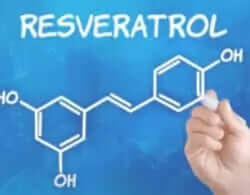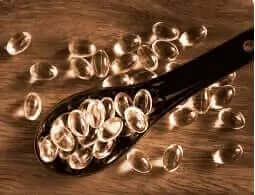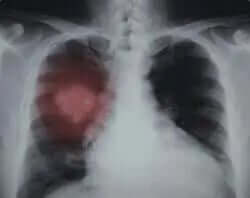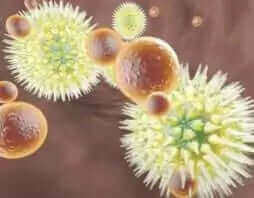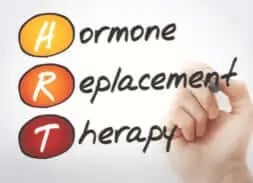Resveratrol: The Ultimate Guide to Nature's Most Powerful Anti-Aging and Fat-Burning Compound
Discover how resveratrol revolutionizes healthy aging and weight management through its remarkable ability to activate your body's natural fat-burning and longevity genes. This comprehensive guide reveals everything you need to know about harnessing resveratrol's transformative power for optimal health and vitality.
What Makes Resveratrol Different from Other Supplements?
While many nutrients like pantethine, carnosine, and DHA offer valuable metabolism-boosting and anti-aging benefits, resveratrol stands uniquely positioned as nature's dual-action powerhouse. This extraordinary polyphenol doesn't just slow aging or boost metabolism separately – it tackles both simultaneously through a fascinating biological mechanism that scientists are only beginning to fully understand.
The secret lies in resveratrol's ability to activate SiRT1, often called the "longevity gene." This activation triggers a cascade of beneficial effects throughout your body, from enhanced fat metabolism to improved cellular repair. When you understand how resveratrol works at this fundamental level, you'll see why researchers worldwide consider it one of the most promising natural compounds for healthy aging and weight management.
The Science Behind Resveratrol's Fat-Burning Power
Research demonstrates that resveratrol supplementation can prevent weight gain even when consuming a high-fat diet. More impressively, it accelerates weight loss when combined with calorie restriction, making it an ideal companion for anyone pursuing healthier body composition. The compound enhances your body's natural fat-burning processes while simultaneously improving exercise endurance and stamina.
Your liver plays a crucial role in this process. Resveratrol helps optimize liver function, enabling more efficient fat metabolism and promoting the breakdown of stored fat. This dual action – preventing new fat storage while mobilizing existing fat stores – makes resveratrol particularly effective for sustainable weight management.
The French Paradox: How Resveratrol Rewrites Health Rules
The discovery of the "French Paradox" sparked worldwide interest in resveratrol benefits. French populations traditionally enjoy rich, high-fat diets yet maintain surprisingly low rates of heart disease. Scientists investigating this phenomenon identified resveratrol in red wine as a key protective factor.
This revelation transformed our understanding of cardiovascular health. Rather than simply avoiding dietary fats, we learned that specific compounds like resveratrol could help our bodies process fats more effectively while protecting our hearts and blood vessels. The implications extend far beyond France, offering hope for anyone seeking to enjoy food while maintaining optimal health.
Cardiovascular Benefits That Change Lives
The cardiovascular benefits of resveratrol include:
- Improved blood flow through enhanced nitric oxide production
- Reduced inflammation in blood vessels and throughout the body
- Lower oxidative stress protecting delicate cardiovascular tissues
- Better cholesterol profiles with increased HDL and reduced LDL oxidation
- Enhanced heart muscle function supporting long-term cardiac health
These benefits work synergistically, creating a comprehensive shield for your cardiovascular system that grows stronger with consistent resveratrol intake.
Natural Sources of Resveratrol: Where to Find This Miracle Compound
Resveratrol occurs naturally in several foods, with concentrations varying dramatically based on growing conditions and processing methods. Understanding these sources helps you make informed decisions about incorporating resveratrol into your daily routine.
Grapes: Nature's Resveratrol Powerhouse
Grapes produce resveratrol as a defense mechanism against infection and UV radiation. Interestingly, grapes grown in damp climates contain significantly higher resveratrol levels than those from dry regions. This protective response results in a powerful antioxidant and antifungal compound that benefits human health in remarkable ways.
The concentration of resveratrol in foods varies considerably:
| Food Source | Resveratrol Content | Additional Benefits |
|---|---|---|
| Red Wine | 2-14 mg per liter | Contains other beneficial polyphenols |
| Red Grapes | 0.16-3.54 mg per 100g | Fresh, whole food source |
| Blueberries | 0.01-0.02 mg per 100g | Rich in anthocyanins |
| Dark Chocolate | 0.035-0.185 mg per 100g | Provides mood-boosting compounds |
| Peanuts | 0.01-0.26 mg per 100g | Affordable protein source |
Supplements: Maximizing Your Resveratrol Intake
While dietary sources provide valuable resveratrol, achieving therapeutic doses often requires supplementation. Most commercial supplements derive resveratrol from Japanese knotweed root, offering a cost-effective alternative to grape-based extracts. Supplement doses typically range from 50 mg to 500 mg or more, far exceeding what's possible through diet alone.
The bioavailability of resveratrol impresses researchers – your body absorbs it rapidly, with blood levels peaking within 30 minutes of consumption. However, the liver metabolizes resveratrol quickly, which is why many experts recommend divided doses throughout the day for sustained benefits.
Resveratrol vs. Other Grape Compounds: Understanding the Difference
Many people confuse resveratrol with grape seed extract or other grape-derived compounds. While all offer health benefits, resveratrol's unique molecular structure and biological activity set it apart. Unlike pterostilbenes found in grape seed extract, resveratrol specifically targets aging and metabolic pathways through SiRT1 activation.
This distinction matters because different compounds work through different mechanisms. While grape seed extract excels at antioxidant protection, resveratrol goes further by actually influencing gene expression. This genetic influence explains why resveratrol can produce such profound changes in metabolism, aging markers, and overall health.
Optimizing Your Resveratrol Protocol for Maximum Results
Success with resveratrol supplementation depends on understanding how to maximize its effectiveness. Research suggests several strategies for enhancing resveratrol's benefits:
Timing Your Resveratrol Intake
- Morning doses align with your body's natural metabolic rhythms
- Pre-workout supplementation enhances exercise performance and fat burning
- Evening doses support overnight cellular repair and regeneration
- With meals improves absorption and reduces potential stomach upset
- Consistent daily timing maintains steady blood levels for optimal effects
Combining Resveratrol with Complementary Nutrients
Strategic nutrient combinations amplify resveratrol's effects:
- Quercetin enhances resveratrol absorption and stability
- Curcumin provides synergistic anti-inflammatory benefits
- Green tea extract boosts metabolic and antioxidant effects
- Omega-3 fatty acids support cardiovascular benefits
- Vitamin D enhances cellular protection and immune function
Real-World Success Stories: How Resveratrol Changes Lives
While formal clinical trials continue expanding our knowledge, countless individuals already experience resveratrol's transformative effects. Common improvements reported include:
- Increased energy levels throughout the day
- Improved exercise performance and recovery
- Better weight management despite unchanged diets
- Enhanced mental clarity and focus
- Improved skin appearance and elasticity
- Better sleep quality and morning vitality
- Reduced joint discomfort and improved mobility
These benefits often appear gradually, building over weeks and months of consistent use. This timeline reflects resveratrol's mechanism of action – rather than providing temporary symptomatic relief, it fundamentally improves cellular function for lasting change.
The Future of Resveratrol Research: Exciting Developments Ahead
Current research into resveratrol explores fascinating new applications beyond weight loss and anti-aging. Scientists investigate its potential for:
Cognitive Enhancement and Brain Health
Emerging studies suggest resveratrol crosses the blood-brain barrier, potentially protecting neurons from age-related decline. This neuroprotective effect offers hope for maintaining mental sharpness throughout life.
Athletic Performance Optimization
Athletes increasingly turn to resveratrol for its endurance-enhancing properties. By improving mitochondrial function and oxygen utilization, resveratrol helps push physical limits while accelerating recovery.
Metabolic Health Revolution
Research reveals resveratrol's influence on insulin sensitivity and glucose metabolism. These findings position resveratrol as a valuable tool for metabolic health optimization, particularly relevant in our modern lifestyle.
Making Resveratrol Work for You: Practical Implementation Guide
Incorporating resveratrol into your wellness routine requires thoughtful planning for optimal results. Consider these practical steps:
- Start with quality: Choose supplements from reputable manufacturers using standardized extracts
- Begin conservatively: Start with lower doses (50-100mg) to assess your response
- Track your progress: Monitor energy levels, weight changes, and overall wellbeing
- Stay consistent: Daily supplementation provides cumulative benefits over time
- Combine with lifestyle: Pair resveratrol with healthy eating and regular exercise
- Adjust as needed: Increase dosage gradually based on results and tolerance
- Consult professionals: Discuss resveratrol use with healthcare providers, especially if taking medications
Remember that resveratrol works best as part of a comprehensive approach to health. While its benefits are remarkable, combining supplementation with positive lifestyle choices multiplies your results exponentially.
Choosing the Right Resveratrol Supplement: Key Considerations
Not all resveratrol supplements deliver equal results. Quality varies significantly across brands and formulations. Consider these factors when selecting your supplement:
Purity and Potency
- Trans-resveratrol content: Look for products specifying trans-resveratrol, the bioactive form
- Concentration levels: Higher percentages (98%+) indicate superior purity
- Third-party testing: Independent verification ensures label accuracy
- Manufacturing standards: GMP certification indicates quality control
Formulation Features
- Enhanced absorption: Some formulations include compounds that improve bioavailability
- Sustained release: Extended-release options maintain steady blood levels
- Complementary ingredients: Synergistic compounds can enhance overall benefits
- Delivery method: Capsules, liquids, and powders offer different advantages
Frequently Asked Questions About Resveratrol
How much resveratrol should I take daily for optimal benefits?
Most research suggests doses between 150-500mg daily provide meaningful benefits. Start with 150mg and gradually increase based on your response. Some studies use higher doses, but always consult healthcare providers before exceeding 500mg daily. The key is consistency – taking resveratrol daily matters more than taking large sporadic doses.
Can I get enough resveratrol from drinking red wine?
While red wine contains resveratrol (2-14mg per liter), achieving therapeutic doses through wine alone would require excessive alcohol consumption. A glass of red wine provides roughly 0.5-2mg of resveratrol, far below supplemental doses. Enjoy wine moderately for pleasure, but rely on supplements for therapeutic resveratrol benefits.
When will I start seeing results from resveratrol supplementation?
Individual responses vary, but many people report increased energy within 2-4 weeks. Weight management benefits typically emerge after 6-8 weeks of consistent use. Anti-aging effects develop gradually over months. Remember that resveratrol works at the cellular level, creating foundational changes that compound over time.
Are there any side effects I should watch for with resveratrol?
Resveratrol is generally well-tolerated, but some people experience mild digestive upset when starting supplementation. This usually resolves by taking resveratrol with food or reducing the initial dose. High doses (over 1000mg) may cause stomach discomfort or loose stools. Always start with lower doses and increase gradually.
Can resveratrol help me lose weight without changing my diet?
While resveratrol enhances fat metabolism and can prevent weight gain on high-fat diets, optimal results come from combining supplementation with healthy eating habits. Resveratrol makes weight management easier by improving how your body processes fats and sugars, but it works best as part of an overall wellness approach.
Is resveratrol safe to take with other supplements or medications?
Resveratrol is safe with most supplements and actually works synergistically with many nutrients. However, because it can affect blood clotting and interact with certain medications (especially blood thinners), consult your healthcare provider before combining resveratrol with prescription drugs. This ensures safe, effective supplementation tailored to your needs.
What's the difference between resveratrol and trans-resveratrol?
Trans-resveratrol is the bioactive form that provides health benefits, while cis-resveratrol is less stable and less effective. Quality supplements specify trans-resveratrol content, typically 98% or higher. When shopping for supplements, always look for products that clearly state their trans-resveratrol percentage to ensure you're getting the active form.
Can resveratrol really slow down aging?
Research strongly suggests resveratrol influences aging at the cellular level by activating sirtuins, protecting telomeres, and reducing oxidative stress. While we can't stop aging entirely, resveratrol helps maintain youthful cellular function longer. Users often report improved skin appearance, better energy, and enhanced vitality – all markers of healthy aging.
Should I take resveratrol on an empty stomach or with food?
Taking resveratrol with food, especially foods containing healthy fats, can improve absorption and reduce potential stomach upset. However, some people prefer taking it on an empty stomach for faster absorption. Experiment to find what works best for you, but if you experience any digestive discomfort, definitely take it with meals.
How does resveratrol compare to other anti-aging supplements?
Resveratrol stands out for its dual action on aging and metabolism through SiRT1 activation. While other supplements like CoQ10, NAD+ precursors, and collagen offer specific benefits, resveratrol provides comprehensive cellular protection. Many anti-aging experts recommend resveratrol as a foundational supplement, often combined with other targeted nutrients for optimal results.
Embrace Your Health Transformation with Resveratrol
The journey to optimal health and vitality begins with understanding the tools available to support your goals. Resveratrol represents more than just another supplement – it's a scientifically validated pathway to enhanced metabolism, graceful aging, and improved quality of life.
As research continues unveiling resveratrol's remarkable properties, one thing becomes clear: this powerful compound offers genuine hope for those seeking natural solutions to modern health challenges. Whether your goals include weight management, cardiovascular protection, or simply maintaining youthful energy, resveratrol provides a proven foundation for success.
Take the first step today toward a healthier, more vibrant future. With resveratrol as your ally, the possibilities for transformation are limitless. Your body possesses incredible capacity for renewal and optimization – resveratrol simply unlocks that potential, allowing you to experience life with renewed energy, clarity, and joy.
References

